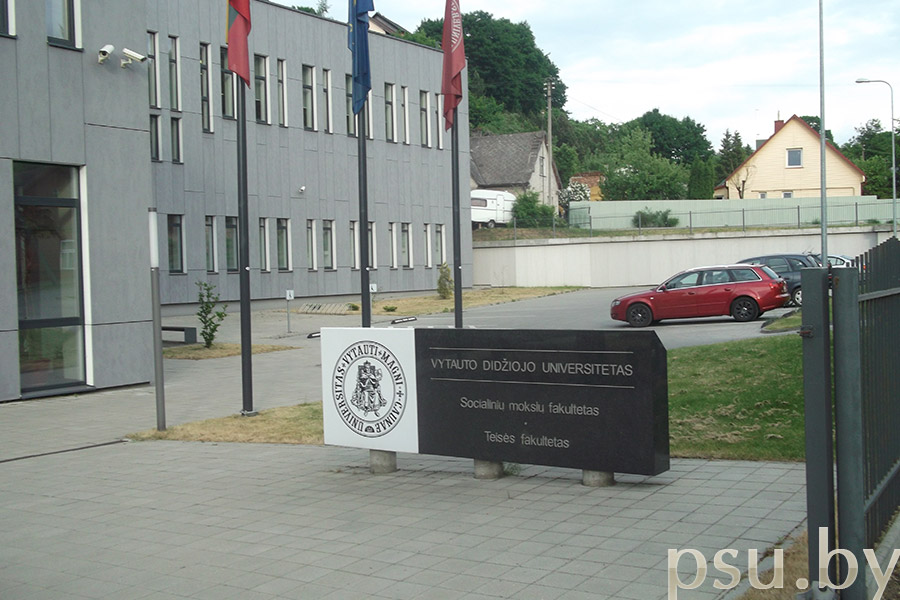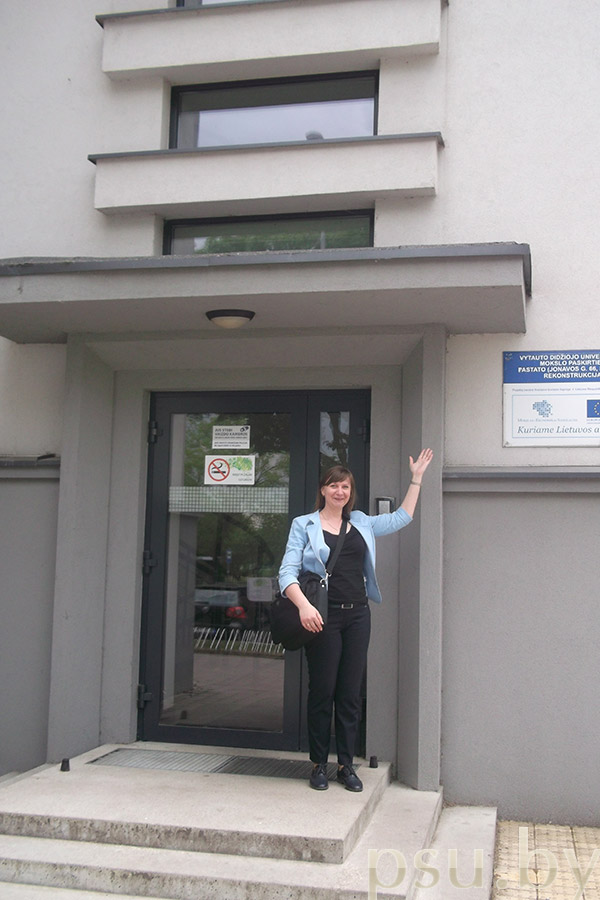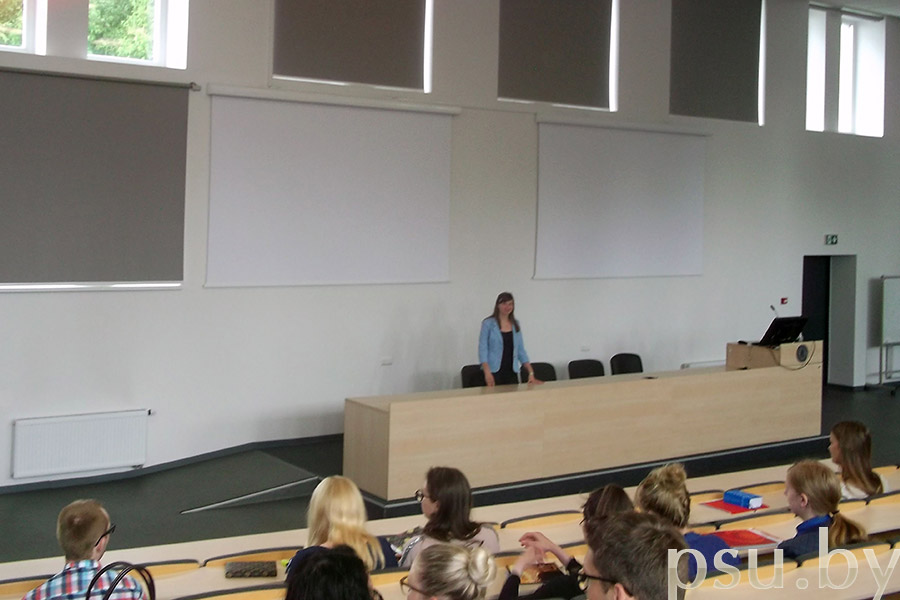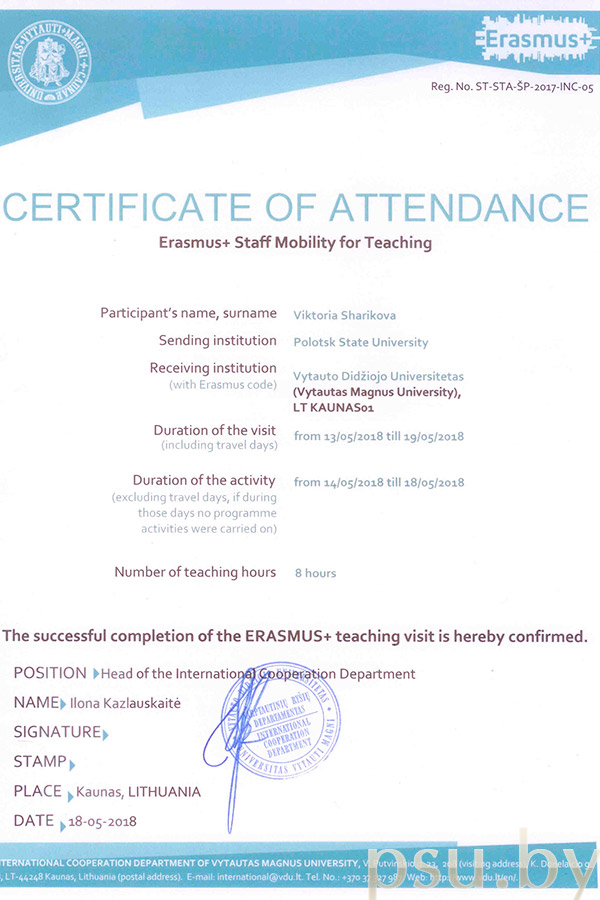Within the framework of the academic mobility of Erasmus+ programme Viktoria Sharikova (Associate Professor at the Department of Criminal Law and Criminalistics at the Faculty of Law) attended lectures at the University of Vytautaus Magnus University (Kaunas, Lithuania).


According to the project students at the Faculty of Law, one of the leading universities in Lithuania, had classes on Criminal Law in English. Lectures and seminars were dedicated to criminal liability for crimes against environment and human health: «Crimes and misdemeanors against Environment and Human Health: comparison of the Belarusian and Lithuanian criminal legislation».

The comparative analysis of some peculiarities of modern criminal law in Lithuania and Belarus contributed to the formation of object representation about the influence of legal and cultural tradition on formulation of legal requirements and specific features of the implementation of provisions of international documents in national legal systems. It also opened interesting problems for the discussion during the seminars.

Viktoria Sharikova: «Lecturers and seminars at the university partner enabled to compare methods and forms of teaching, content of syllabuses and peculiarities of the study process within other social tradition. Holding lectures for Lithuanian students was a very interesting format of increasing methodological level of presenting study material, a stimulus for reassessment of current practical methods of work with students. Of course, such projects require some efforts from its participants, but as a result they gain new interesting and unique experience that expands their possibilities and prospects for personal development».
The participation in such projects as Erasmus+ is a requirement of the modernity. It enables to gain personal experience, that develops lecturer’s professional competence, but also establishes solid international academic relations which are very necessary for the development of science and education.